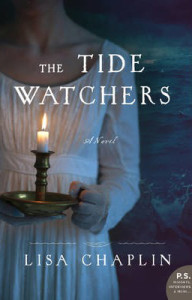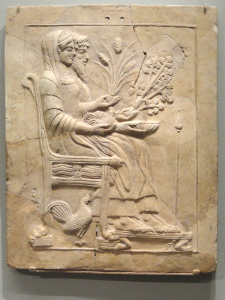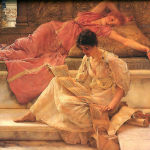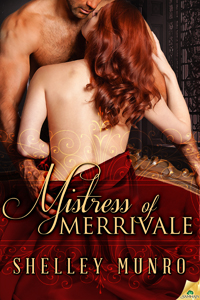I don’t know about you but I’ve become a bit jaded about Pride & Prejudice retellings. All that marital bliss, all that Darcy-Firth-wet shirt angsty goodness, but none of the wit and snarkiness of our dear Jane’s original. Until that is, I was offered, and read, an advance copy of Prejudice & Pride by Lynn Messina. Reader, I loved this book. It has style and wit and funny stuff in spades, and it’s just plain clever. As the blurb says:
 You know Darcy: rich, proud, standoffish, disapproving, one of the greatest romantic heroes of all time. But you don’t know this Darcy because THIS Darcy is a woman.
You know Darcy: rich, proud, standoffish, disapproving, one of the greatest romantic heroes of all time. But you don’t know this Darcy because THIS Darcy is a woman.
In Prejudice & Pride, Lynn Messina’s modern retelling with a gender-bendy twist, everything is vaguely familiar and yet wholly new. Bingley is here, in the form of Charlotte “Bingley” Bingston, an heiress staying at the Netherfield hotel on Central Park, as is Longbourn, transformed from an ancestral home into a perennially cash-strapped art museum on the edge of the city. Naturally, it employs an audacious fundraiser with an amused glint in his eye called Bennet.
And about the author:Lynn Messina is the author of 14 novels, including Fashionistas, which has been translated into 16  languages, and The Love Takes Root series of Regency romances. Her essays have appeared in Self, American Baby and the Modern Love column of The New York Times. She’s also a regular contributor to the Times Motherlode blog. Lynn lives in New York City with her husband and sons. You can find her on Facebook and Twitter.
languages, and The Love Takes Root series of Regency romances. Her essays have appeared in Self, American Baby and the Modern Love column of The New York Times. She’s also a regular contributor to the Times Motherlode blog. Lynn lives in New York City with her husband and sons. You can find her on Facebook and Twitter.
Lynn, welcome to the Riskies. You’ve written Regency Romance and several other genres, but why did you take on P&P?
Because I had the idea. When I saw Bride and Prejudice, I was struck by how rude and unpleasant the Elizabeth character was. It seemed to me almost as if the writer had swapped the characters. And when I noticed how neatly their names flipped—Fitzwilliam Darcy becoming Darcy Fitzwilliam—I got really excited. I went home and immediately wrote up a pitch for my agent, who just as quickly shot it down. So I put the idea aside and honestly forgot about it. That was in 2004. Then, recently, I had a nice run with Regency romances, and remembered the idea and thought, Hold on, I can do it myself now.
Which is your favorite character in Austen’s? And in your own?
Elizabeth because she’s so clever and undaunted. As someone who’s sometimes clever and frequently daunted, I admire those traits greatly. In my version, Bingley is easily my favorite. She was an absolute delight to write—funny and frivolous yet smart and astute. In the early drafts, that was actually a problem—she was a little too likable. Obviously, she has to be more amiable than Darcy, but I couldn’t have every reader, including myself, wondering why Bennet doesn’t fall in love with her.
How have die-hard Austen purists responded?
For the most part, the response has been very positive, so I have to assume no die-hard Austen purists have weighed in yet. In 2010, I wrote a mashup of Little Women and vampires, and a woman posted on her blog that when she’d heard about the book, she wanted to chop off my fingers. So I’m prepared for the worst.
What have you learned most from Austen about writing?
Honestly, the thing I learned most was to relax a little. When Austen’s characters speak to each other, they just speak. That is, they converse back and forth without the insertion of attributions or what I like to call tasks. In my books, one character is always doing something while she’s talking—say, pouring tea—and the conversation is interspersed with descriptions of this process. I can’t tell you the hours I’ve lost trying to come up with new tasks. (This partly explains my affinity for historical romance: It’s always teatime in Regency England.)
And about relationships?
That they’re always more complex than I give them credit for and that sometimes in order to remain emotionally true to a character you have to deny yourself a little emotional satisfaction. Naturally, I’m talking about Wickham and how genteelly and calmly Elizabeth registers her disgust of him when they meet after the wedding. I want her to pop him in the nose or at the very least give him a cutting set-down, but it’s not just about her. It’s also the complex web of familial relationships.
Which is your favorite Austen?
I want to say Persuasion because I identify so much with Anne Elliot and the scene where Captain Wentworth writes her a letter while listening to her conversation is one of my most favorite moments in any book ever. But I’ve been reading and rereading Pride & Prejudice at regular intervals since I was thirteen, so clearly that’s the sentimental favorite.
Would you consider another modern interpretation?
I would never say no to anything if I got an idea. But I’m been ransacking the classics for a while now. After Little Vampire Women, there was an updated version of Dickens’s Bleak House, which replaced the court case that never ends and ruins every life it touches with a movie option that never ends and ruins every life it touches. (Um, can you tell I had a movie options that went on for almost a decade?)
What’s next for you?
Omigod, I ask myself that every day. I’m really not sure. I have an idea for something modern that rifts on Emily Post’s Etiquette book from the 1920, which I read because etiquette stuff fascinates me. But the book also gave me an idea for another Regency, so maybe I’ll work on that next. But I’ve had an idea for a screenplay kicking around in my head for a while, so maybe I’ll do that.
Lynn is giving away three digital copies (US only) and one hardback copy (worldwide) and you have various options to win a copy by participating. Easy, fun, and probably even Catherine de Bourgh, assuming she had the taste, could manage it. Please ask Lynn questions, or, since it’s (still, just) December, and we celebrated Jane’s birthday on December 16, answer the question I asked Lynn: What have you learned from Austen about writing and/or about relationships?












